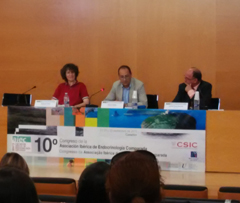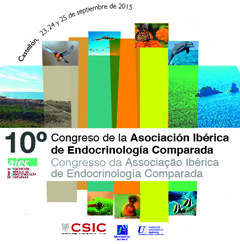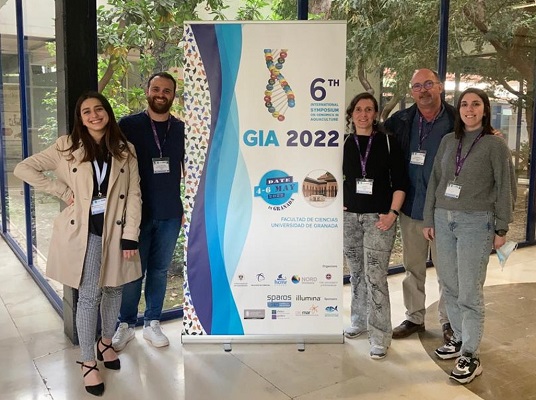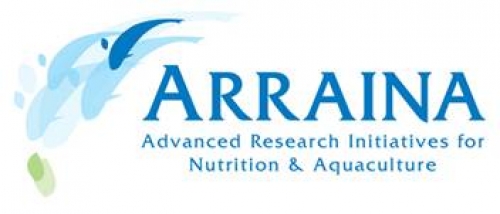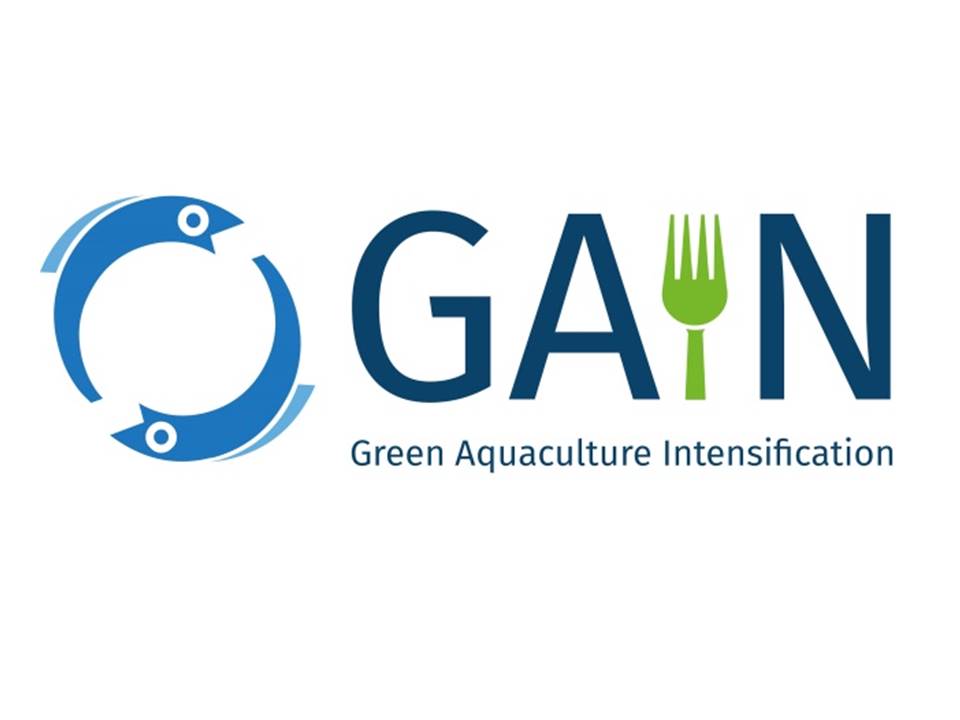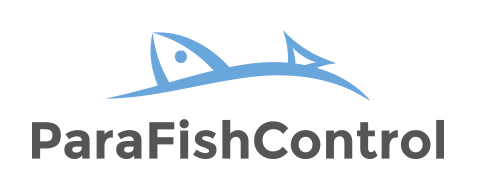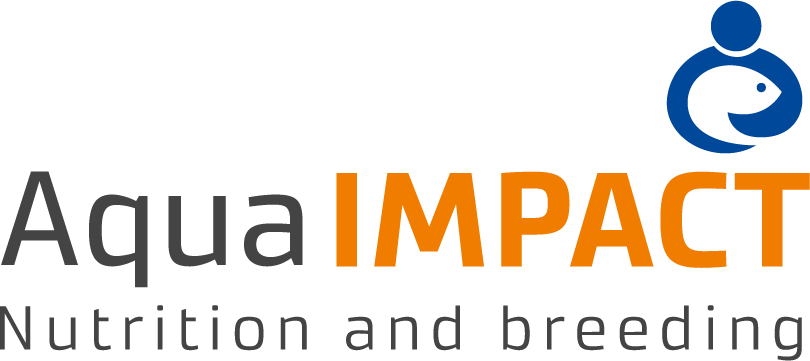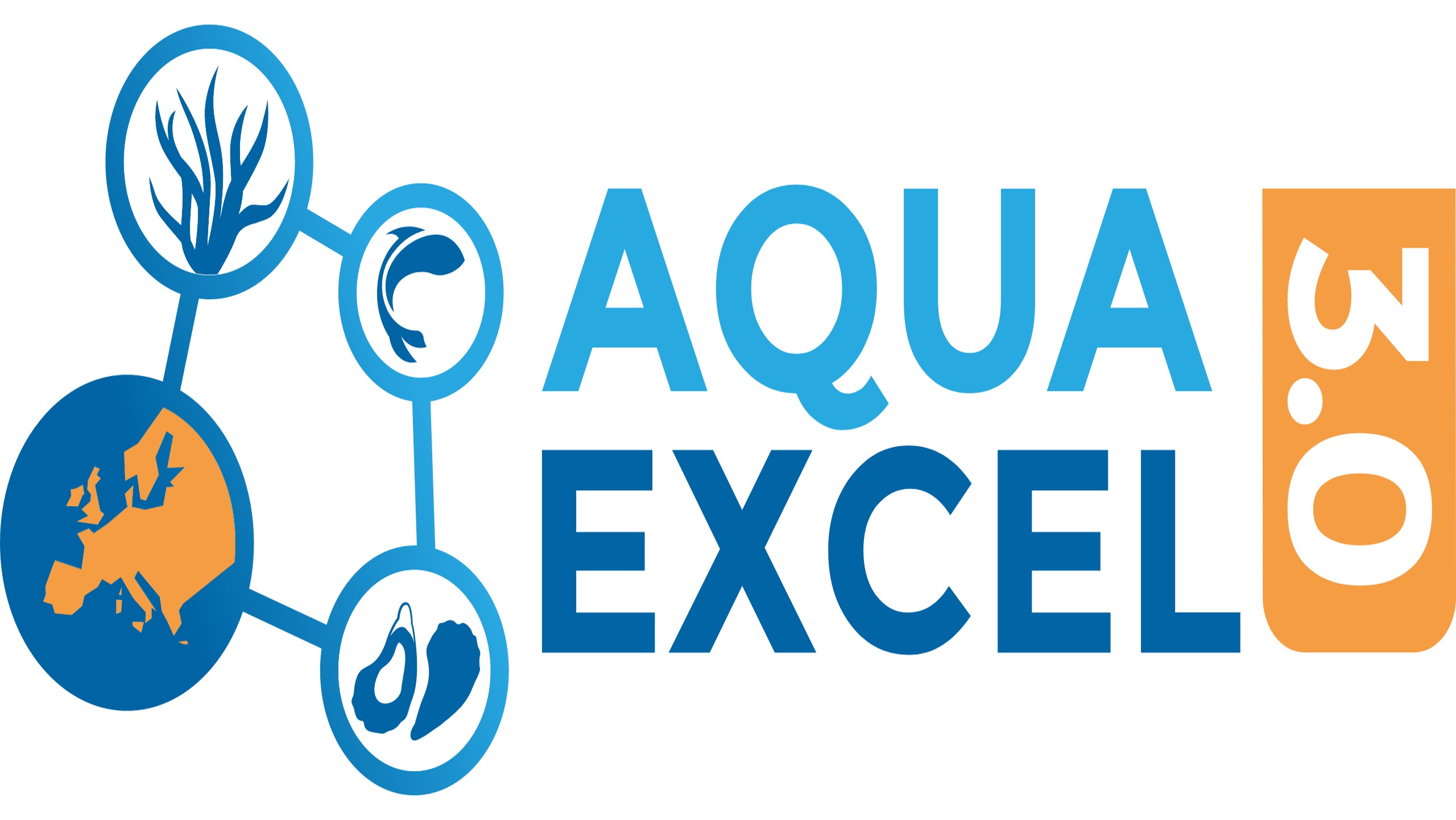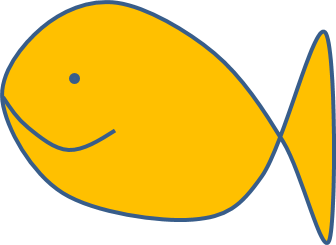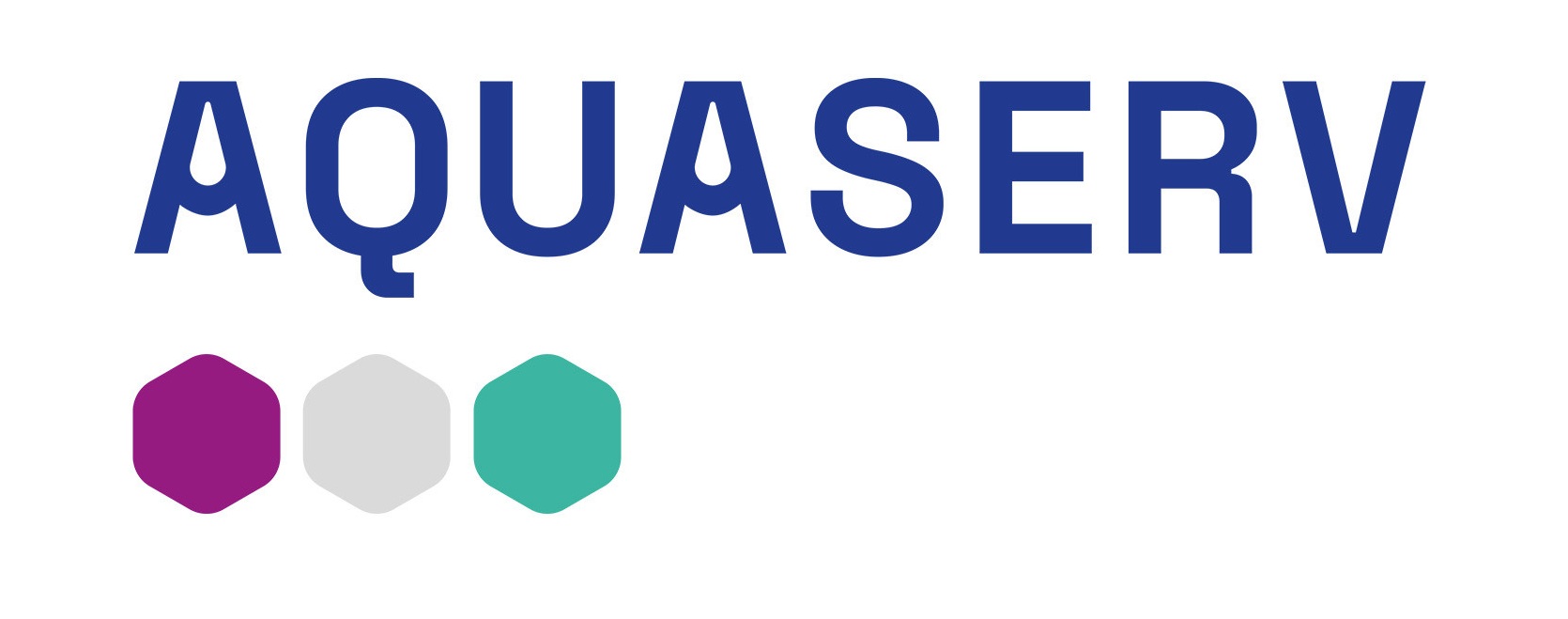6th International Symposium on Genomics in Aquaculture2022-06-08
Researchers and students of Nutrigenomics and Fish Pathology groups of IATS have attended the 6th International Symposium on Genomics in Aquaculture, held in Granada (May 4-6). They have participated in three oral communications.
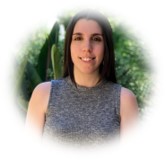 Beatriz Soriano presented SAMBA (Scanning Aquaculture Microbiome via Bayesian Approach), an application based on Bayesian networks intended to predict changes in the composition and function of mucosal microbiome in farmed fish, correlating microbial architectures with a number of biotic and abiotic factors. SAMBA also permits to interrogate the model to identify which experimental conditions are optimal for obtaining a given pan-microbiome and associated metagenome. This application will be implemented to be accessible as a web server at this site.
Beatriz Soriano presented SAMBA (Scanning Aquaculture Microbiome via Bayesian Approach), an application based on Bayesian networks intended to predict changes in the composition and function of mucosal microbiome in farmed fish, correlating microbial architectures with a number of biotic and abiotic factors. SAMBA also permits to interrogate the model to identify which experimental conditions are optimal for obtaining a given pan-microbiome and associated metagenome. This application will be implemented to be accessible as a web server at this site.
 Fernando Naya-Català talked about the interaction of the genetic background and dietary intervention through feed additives, driving reshaping of gut microbiome in gilthead sea bream. Experimental diets oil-coated with organic acids, Bacillus-species probiotics or natural plant extracts were tested in fish selected and unselected for growth. It was demonstrated that genetics and diet interaction on gut microbiota was specific for each additive, being gut microbiota less variable in selected fish.
Fernando Naya-Català talked about the interaction of the genetic background and dietary intervention through feed additives, driving reshaping of gut microbiome in gilthead sea bream. Experimental diets oil-coated with organic acids, Bacillus-species probiotics or natural plant extracts were tested in fish selected and unselected for growth. It was demonstrated that genetics and diet interaction on gut microbiota was specific for each additive, being gut microbiota less variable in selected fish.
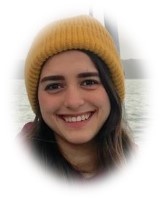 Socorro Toxqui Rodríguez showed the validation of Oxford Nanopore minION technology as a fast and low-cost tool for the profiling of mucosal sea bream microbiota. This technology was compared with 16S amplicon data generated by other established techniques such as MiSeq and PacBio. Her presented results provided precise insights into the advantages and disadvantages of this specific sequencing platform, and their suitability depending on the experimental approach, expected output, and cost and time constraints of a given experiment.
Socorro Toxqui Rodríguez showed the validation of Oxford Nanopore minION technology as a fast and low-cost tool for the profiling of mucosal sea bream microbiota. This technology was compared with 16S amplicon data generated by other established techniques such as MiSeq and PacBio. Her presented results provided precise insights into the advantages and disadvantages of this specific sequencing platform, and their suitability depending on the experimental approach, expected output, and cost and time constraints of a given experiment.
